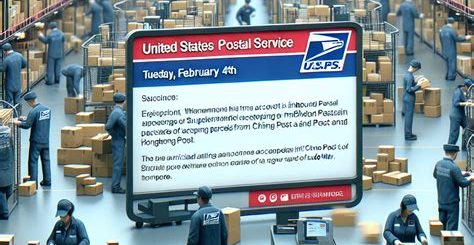The Booklover’s Guide to Affordable China Consolidation: How UK Independent Bookstores Build Diverse Collections Without Breaking the Bank
Introduction: Why China Is a Goldmine for Bookstore Inventory
For independent bookstores in the UK, Europe, and North America, sourcing unique, affordable, and diverse book collections is the key to standing out in a competitive market. China’s publishing industry—the largest in the world—offers a treasure trove of opportunities: niche titles, rare editions, and bulk discounts that can transform a bookstore’s inventory. However, navigating international shipping, customs, and logistics can quickly drain profits. This guide explores how China consolidation services solve these challenges, enabling bookstores to import affordably while curating standout collections.
Why China? Unbeatable Value for Bookstore Owners
- Unmatched Variety:
- China produces over 40% of global books, with strengths in academic texts, children’s literature, art books, and niche genres.
- Access to both mainstream publishers (e.g., People’s Publishing House) and indie presses specializing in translated works or local Chinese authors.
- Cost Advantages:
- Books cost 30–70% less than in Western markets due to lower printing costs and direct-from-source purchasing.
- Bulk buying from Chinese suppliers can yield additional discounts, perfect for stocking bestsellers or building curated shelves.
- Customization Opportunities:
- Partner with Chinese printers to create custom-designed books (e.g., localized editions, exclusive covers, or bilingual titles).
Case Study: A small London bookstore saved £5,000 annually by sourcing children’s books directly from Chinese publishers, then using consolidation to ship 200+ books at once.
The Logistics Challenge: Why Individual Shipping Is Costly
While Chinese books are cheap, shipping them individually can erode savings:
- High International Rates: A single 5kg book parcel shipped via DHL/FedEx costs ~120,versus120,versus20–$30 via consolidated sea freight.
- Customs Hassles: Duties, VAT, and complex documentation add time and money.
- Inefficiency: Small, frequent shipments waste resources on packaging and tracking.
Solution: Consolidation. By grouping orders from multiple suppliers into one shipment, bookstores pay 22–6 per kg (sea freight) or 88–12 per kg (air freight)—a fraction of individual shipping costs.
How China Consolidation Works for Bookstores
- Step 1: Shop Across Multiple Suppliers
- Use platforms like Alibaba, Taobao, or specialized book distributors (e.g., Yuewen Group, Jinpeng Publishing).
- Tip: Prioritize suppliers near Shanghai or Yiwu for faster domestic transit to consolidation centers.
- Step 2: Send Books to a Consolidation Hub
- Consolidators (e.g., MyUS, ShipHero, Parcel Monkey) receive parcels from your suppliers, inspect for damage, and combine them into one shipment.
- Some offer free storage for 30–60 days, allowing you to batch orders.
- Step 3: Choose Your Shipping Method
- Sea Freight: Cheapest (22–5/kg), but slow (4–8 weeks). Ideal for non-urgent stock.
- Air Freight: Faster (7–14 days) at 88–12/kg. Best for seasonal releases or limited-time promotions.
- Hybrid Option: Mix air and sea for urgent vs. bulk items.
- Step 4: Clear Customs Efficiently
- Reputable consolidators handle HS code classification, invoices, and duty prepayment.
- For EU bookstores: VAT applies to shipments >€150. Consolidators often pre-calculate this.
- For US/Canada: Personal shipments under $800 usually avoid duties, but commercial goods require formal entry.
Key Benefits of Consolidation for Bookstores
- Cost Savings:
- A typical 100kg shipment costs ~500viaseafreightvs.500viaseafreightvs.3,000+ for individual courier.
- Avoid overpaying for “fuel surcharges” or “remote area fees.”
- Time Efficiency:
- Consolidators coordinate pickups from multiple suppliers, saving you weeks of back-and-forth.
- Risk Mitigation:
- Insurance options for lost/damaged books.
- Professional packing reduces damage during transit.
- Scalability:
- Start small (e.g., 50kg/month) and scale as your bookstore grows.
Choosing the Right Consolidator: Red Flags & Must-Haves
Must-Have Features:
- Transparent pricing (no hidden fees for storage, repackaging, or customs).
- Tracking integrations (e.g., DHL/UPS API compatibility).
- English-speaking support and VAT/duty calculators.
- Reviews from other European/North American bookstores.
Red Flags:
- No liability insurance for lost parcels.
- High minimum shipment weights (e.g., 200kg+).
- Poor communication (check reviews for delayed responses).
Top Consolidators for Bookstores:
- MyUS: US-based, trusted by indie bookstores for decade.
- ShipHero: EU-focused, specializes in small business shipments.
- Parcel Monkey: Affordable sea freight for Canada/Australia.
- China Consolidation: UK-friendly with VAT-inclusive pricing.
Tax & Compliance: Navigating Regulations Like a Pro
- VAT in the EU:
- If your shipment value exceeds €150, you’ll pay import VAT. Use a consolidator that pre-charges this.
- Example: A €200 shipment incurs ~€40 VAT. Without prepayment, expect delays.
- US Customs:
- Personal shipments under $800 typically avoid duties. For commercial goods, hire a freight forwarder to handle formal entry.
- Canada’s De Minimis Threshold:
- Shipments under CAD $20 usually avoid taxes. Consolidate to stay below this limit.
- Documentation Tips:
- Always declare books as “used” if applicable to reduce tariffs.
- Include detailed commercial invoices (title, ISBN, value) to avoid customs delays.
Case Study: How a Scottish Bookshop Saved £1,200/Year
Background: Bookworm Haven in Edinburgh sourced children’s books from Chinese suppliers but spent £300/month on DHL shipping.
Solution:
- Partnered with a UK consolidator (China Consolidation) to batch monthly orders.
- Switched to sea freight, paying £0.5/kg instead of £5/kg.
- Pre-paid VAT to avoid clearance delays.
Result: Annual savings of £1,200, plus access to 30% more titles thanks to lower costs.
Step-by-Step Guide to Your First Consolidated Shipment
- Week 1–2: Research suppliers on Alibaba/Taobao. Order books from 3–5 vendors.
- Week 3: Ship books to your consolidator’s Chinese warehouse.
- Week 4: Review consolidator’s photo inspections (check for damaged books).
- Week 5: Choose shipping method (sea/air) and pay duties upfront.
- Weeks 6–8: Track delivery and prepare for customs clearance.
- Week 9: Receive books, inspect, and stock shelves!
Advanced Tips: Maximize Profits & Minimize Risks
- Negotiate Bulk Discounts: Ask Chinese suppliers for 10–15% off if you order 50+ copies.
- Mix Air & Sea: Ship seasonal releases (e.g., Christmas titles) via air, bulk basics via sea.
- Use Currency Converters: Pay suppliers in RMB to avoid currency conversion fees.
- Network With Other Bookstores: Share consolidator costs by splitting shipments with nearby stores.
- Track Trends: Use tools like Alibaba’s trending categories to spot emerging genres (e.g., self-help, graphic novels).
Conclusion: Build a World-Class Collection Without Breaking the Bank
China’s book market is a paradise for independent bookstores—but only if you navigate shipping smartly. By leveraging consolidation, UK and North American bookstores can access affordable, diverse inventory while keeping logistics costs low. Start small, test suppliers, and scale gradually—your customers will thank you with their loyalty (and your wallet will thank you too).


